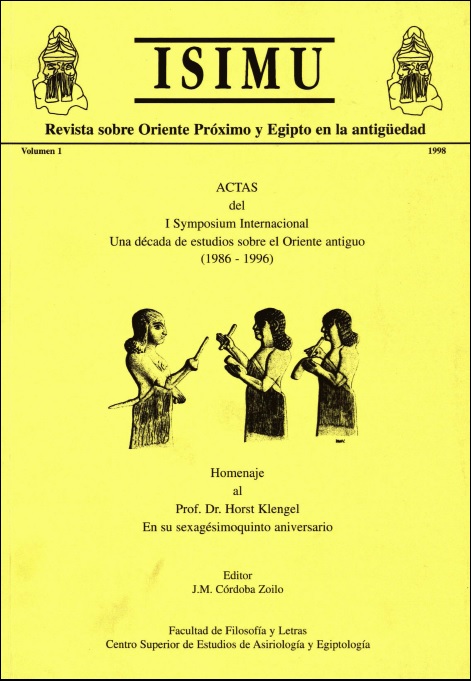Derechos de autor 2016 ISIMU

Esta obra está bajo una licencia internacional Creative Commons Atribución-NoComercial 4.0.
Resumen
In the present article, and through the analysis of the Epic of Gilgamesh, there is an attempt to stress the non-urban background which this poetic composition offers. Together with the character of Enkidu, the prototype of primordial man who "did not know how to eat bread or drink beer", among other symbols of civilization, the narration presents us the first adventures of Gilgamesh in an urban context. The whole work features a process of culturization, ranging from nomadism, shepherding, and agriculture, to the hedonistic life of the city. Gilgamesh will go the opposite way to Enkidu when, seized by despair and the search for inmortality, he rushes to the steppe to live as a nomad. However, civilization will naturally resurface, and the city of Uruk will be again the frame in which life deserves to be lived.
